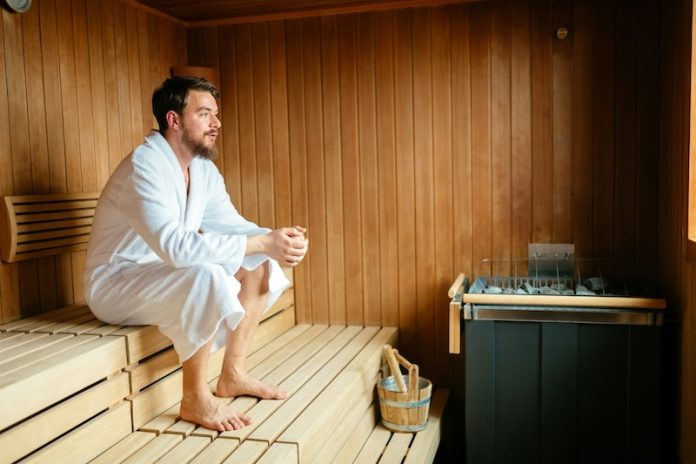
Prolonged use of saunas can pose serious health risks, including heat stroke, especially for individuals who are not adequately hydrated.
Doctors are highlighting these dangers in the BMJ Case Reports after treating a woman who required hospitalization due to severe heat stroke following a long sauna session.
Heat stroke is a potentially life-threatening condition, even in the absence of underlying health risks such as heart or lung disease, neurological conditions, or excessive alcohol consumption.
It occurs when the body’s core temperature rises sharply above 40°C and is accompanied by impaired brain function.
While “exertional” heat stroke is linked to intense physical activity, “non-exertional” heat stroke results from prolonged exposure to high environmental temperatures, such as those in a sauna.
A Case of Severe Heat Stroke
In this case, a woman in her early 70s, who was a regular gym-goer, was found unconscious after spending around 45 minutes in her local gym’s sauna while doing stretching exercises.
She had no history of smoking or heavy drinking and was generally in good health, apart from managing type 1 diabetes and an underactive thyroid.
By the time she was brought to emergency care, her core body temperature had soared to 42°C (normal is around 36.4°C). Her blood pressure was dangerously low, her heart rate was extremely high, and she experienced a seizure shortly after arrival.
She was immediately treated with cooling measures, including wet towels and fans, and received intravenous fluids and blood products to stabilize her condition.
Medical Complications and Recovery
Tests revealed that the woman’s kidneys and liver were malfunctioning, she had suffered a minor heart attack, and her muscle tissue was breaking down (a condition known as rhabdomyolysis).
While she regained consciousness within two hours of her body temperature returning to normal, she remained confused and drowsy for two days. After a 12-day hospital stay, she was discharged, and by 26 days, she had mostly recovered, with only mild fatigue and slight liver function abnormalities remaining.
Broader Implications and Risks
While such cases of sauna-induced heat stroke are rare—only nine similar incidents have been reported in medical literature, three of which were fatal—they underline the dangers of prolonged exposure to high heat, particularly for older adults.
Heat stroke in elderly individuals carries a mortality rate of over 50%, and this risk increases with additional organ dysfunction.
Global trends also signal a rising concern. Heat-related deaths tend to spike during heat waves, and as climate change drives global temperatures higher, the prevalence of heat stroke is expected to increase.
The doctors emphasized the critical importance of rapid cooling for heat stroke patients, as prolonged elevated body temperature is directly linked to the severity of cellular damage.
A Lesson in Caution
Reflecting on her experience, the woman said, “My experience has emphasized the dangers of saunas and how important it is to be fully hydrated before entering. Regular checks by staff are also essential. As a regular sauna user, I never had any issues before, but I now realize I hadn’t drunk enough water.”
This case serves as a reminder for sauna users to take precautions, such as staying hydrated, limiting time in the sauna, and ensuring facilities are properly monitored. While saunas can offer health benefits, responsible use is key to avoiding serious risks like heat stroke.
If you care about stroke, please read studies that diets high in flavonoids could help reduce stroke risk, and MIND diet could slow down cognitive decline after stroke.
For more health information, please see recent studies about antioxidants that could help reduce the risk of dementia, and tea and coffee may help lower your risk of stroke, dementia.
The research findings can be found in BMJ Case Reports.
Copyright © 2025 Knowridge Science Report. All rights reserved.



